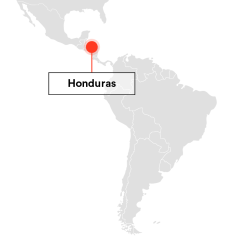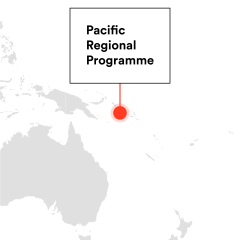Facilitate women's movement building

Facilitate women's movement building
Case Studies

In Honduras, the Centre for Justice and International Law, in partnership with women’s rights organisations, civil society organisations and feminist organisations, worked tirelessly over five years to campaign for the passage of “La Esperanza Protocol”. This was published in December 2021 and is now recognised as the international standard for the investigation and response to threats and attacks against human rights defenders. Thanks to the work of WROs, the protocol includes a specific focus on the contribution of women human rights defenders to strengthening democracy. It also recognises the unique risks that women human rights defenders and their families face to violence, along with their security needs while carrying out this vital work. Spotlight Initiative supported this campaign by providing funding to the campaign, which helped finalise and publish the protocol.



In 2021, Spotlight Initiative established the Pacific Feminist Community of Practice (PacFemCOP). This was moderated by DIVA for Equality in Fiji. It involved a co-creation process between 20 CSOs and around 80 activists from across the region. Through PacFemCOP, these activists were able to document feminist best practice from across the region, including topics such as feminist approaches to gender, ecological and climate justice; elimination of VAWG; how to mobilize, organize and action for change; feminist approaches to economic justice; SOGIESC; bodily autonomy and integrity; and sexual and reproductive health. These intersectional and intergenerational sessions were designed to build on a body of good practice from feminist social movements. Following these dialogues, PacFemCOP developed over 35 resources and videos which they made available on their website free of charge.
In addition, they participated in a series of teachings, dialogues, and networking opportunities, strengthening connections across organizations. Through this, they were able to deepen opportunities for collaborative activism. For example, they have gathered around key issues such as VAWG, the climate crisis, and economic insecurity among others. In addition, these dialogues have supported community-based organising. For example, the group worked together to inform the 66th session of the Commission on the Status of Women and the 2022 United Nations Climate Change Conference (COP27).
By the end of the first stage of the programme, DIVA for Equality had engaged 95 participants from 45 groups across 14 island States and territories. These efforts have helped educate and galvanise community support around shared priorities. The creation of a community of practice has supported activists from different countries to learn about what strategies are effective in other contexts and promoted adaptation and adoption to new contexts. It has also supported opportunities for shared and collective activism across the region and even internationally. This is a strong example of where co-design, equal partnership and transparent communication between the UN Team and DIVA for Equality has supported the creation of a regional movement-building hybrid platform, which brings together CSOs and diverse actors from across the Pacific to achieve collective change on VAWG.







